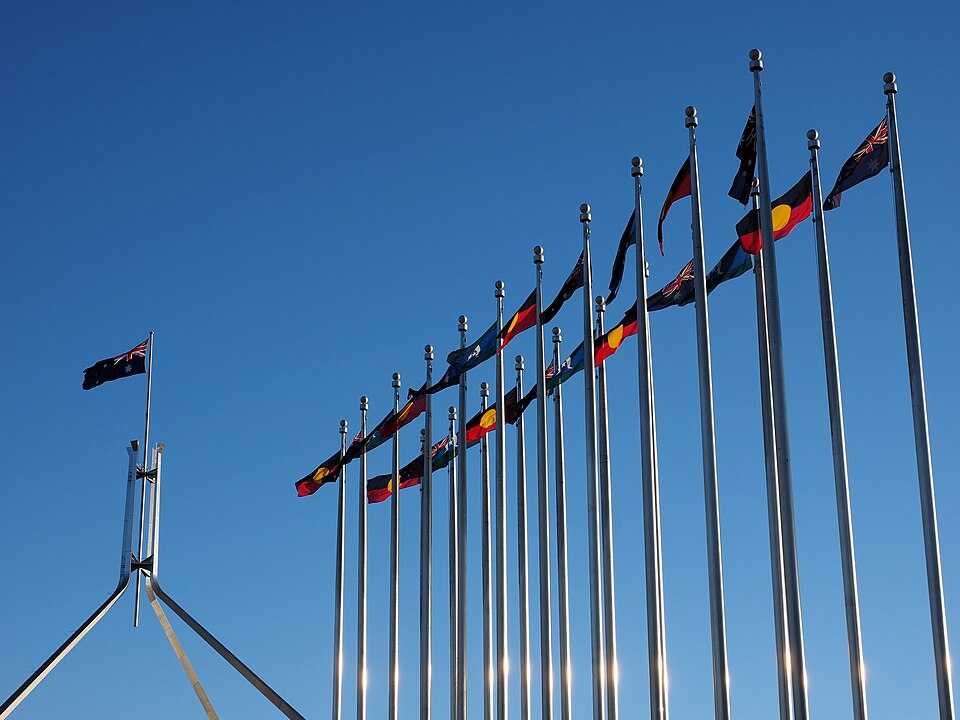This week in Australian foreign affairs: Julie Bishop faces calls for a U.N. investigation over alleged conflicts of interest linked to her consulting firm; Russia warns Australia against sending peacekeeping troops to Ukraine; Prime Minister Albanese criticises U.S. tariffs on Australian steel and aluminium; Resources Minister Madeleine King urges the U.S. to partner with Australia on critical mineral development; and Solomon Islands PM Jeremiah Manele seeks a compromise with Australia on policing support and more.
Russia issued a warning of “grave consequences” if Australia proceeds with plans to send peacekeeping troops to Ukraine. The Russian embassy in Canberra stated that the idea is “unacceptable” and urged Prime Minister Anthony Albanese to drop it. Albanese had confirmed discussions with UK Prime Minister Keir Starmer about joining a peacekeeping force if a ceasefire occurs in Ukraine. Foreign Minister Penny Wong rejected Russia’s threat, asserting Australia’s commitment to peace and stating that any peacekeeping mission would only happen with a ceasefire. Opposition leader Peter Dutton opposed sending Australian troops, suggesting the responsibility lies with Europe, and emphasised continued support through military aid and training.
Activist groups have called for the United Nations to investigate its special envoy to Myanmar, Julie Bishop, over alleged conflicts of interest involving her consulting firm. Justice for Myanmar, a rights group, urged U.N. Secretary-General António Guterres to launch a probe following an investigative report by The Saturday Paper, which outlined Bishop’s purported ties to Chinese state-owned mining and construction companies with stakes in Myanmar. Other activist organisations have also joined the call for an inquiry. Bishop, a former Australian foreign minister and current ANU chancellor, denies any wrongdoing, stating her firm has never advised on Myanmar-related matters. A U.N. spokesperson confirmed that Bishop is bound by the organisation’s regulations, which demand staff maintain the highest standards of integrity, including avoiding conflicts of interest.
Prime Minister Anthony Albanese has criticized the U.S. decision to impose a 25 percent tariff on Australian steel and aluminium, calling it “unjustified” and an act of “economic self-harm”. Foreign Minister Penny Wong warned the tariffs would hurt American consumers, but Australia will not retaliate. The opposition, however, has blamed the Albanese government for failing to secure an exemption. Shadow ministers have also questioned whether Ambassador Kevin Rudd’s strained relationship with Trump played a role in the outcome.
Former Foreign Minister Bob Carr has criticised Australia’s reliance on the US, calling it “lazy” and warning against illusions of a “special relationship.” Carr urged Australia to adopt a stronger diplomatic stance and reconsider AUKUS, arguing the US is unlikely to deliver promised submarines. He suggested reopening talks with France for a more viable defence deal, warning that Trump’s America is “brutal” and purely self-interested.
Despite the criticisms, the Albanese government insists that it has engaged at all levels, including two direct calls between the prime minister and Trump. Wong defended Rudd’s diplomatic efforts, dismissing the opposition’s attacks as politically motivated.
Solomon Islands Prime Minister Jeremiah Manele has pushed back against Australia’s attempts to tie strategic concessions to a $190 million policing package, saying negotiations are ongoing to find a “compromise.” He emphasised that Solomon Islands must take the lead on its own policing decisions. Manele also criticised Donald Trump’s decision to withdraw from the Paris Agreement, calling it “regrettable” and warning that Pacific nations like Solomon Islands will suffer disproportionately from climate change. Additionally, he expressed concerns over US aid cuts, particularly to programs for clearing World War II-era unexploded bombs, and suggested seeking support from Australia, New Zealand, and Japan to fill the gap.
Australia’s Resources Minister Madeleine King has warned the U.S. that if they don’t partner on critical mineral development, Australia will turn to alternative buyers across Europe and Asia. Critical minerals, essential for green energy and defence technologies, are in high demand. King emphasised that while Australia would prefer a partnership with the U.S., it will continue working with countries like Japan, South Korea, and the European Union if necessary. This statement comes as the U.S. plans to impose new tariffs, and Australia’s government, led by Prime Minister Albanese, prepares to address the situation with other partners.
The Albanese government, with support from figures like Ambassador Kevin Rudd, stresses that Australia is a stable, long-term partner for the U.S. on critical minerals. Despite the ongoing trade tensions, Australia is positioned to supply many of the critical minerals the U.S. needs. Leaders like Tim Ayres and Don Farrell argue for diversifying trade relationships, reflecting the need to avoid reliance on a single country, as seen in the past with issues like the China-Australia tariff row.
Emily Mosley is the National Operations Manager for the Australian Institute of International Affairs and manages programming and publications for the AIIA’s National Office.
This article is published under a Creative Commons License and may be republished with attribution.



